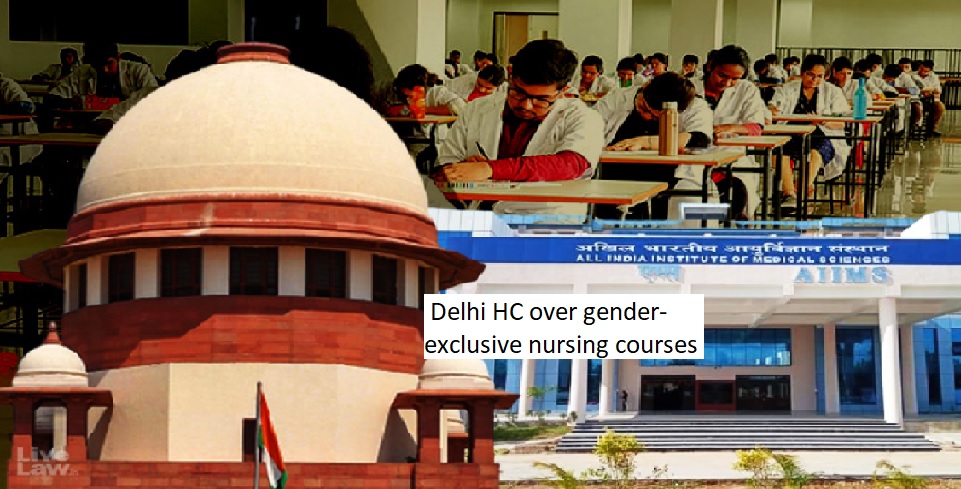


In the Delhi High Court, a petition has been lodged challenging the stipulation that exclusively permits female applicants for the B.Sc (Hons.) Nursing Course in nursing institutions affiliated with the All India Institute of Medical Sciences (AIIMS), Delhi University (DU), and Guru Gobind Singh Indraprastha University (GGSIPU). The filing has been initiated by the Indian Professional Nurses Association, a non-governmental organization devoted to the well-being of nurses nationwide.
The plea advocates for a reconsideration of the existing regulation and proposes the formulation of a new rule permitting individuals of all genders to be eligible for admission to B.Sc. (Hons.) nursing programs. It contends that restricting access to B.Sc. (Hons.) Nursing courses exclusively to females in esteemed and economically accessible nursing colleges in the national capital is unjust and contravenes democratic, equitable, and fair principles.
The petition argues that persisting with the tradition of deeming only female candidates eligible for admission to B.Sc. (Hons.) Nursing is inherently capricious and does not align with the criteria of reasonable correlation to the intended objective and sensible classification based on intelligible differences as mandated by Article 14 of the Constitution.
According to the plea, this classification is limited to entitling female candidates to a specific B.Sc. (Hons.) Nursing course based on a regulation that fails to acknowledge present-day realities. The rule, it contends, neglects the fact that there is a shortage of nursing professionals in the country. Thus, the prohibition of non-female candidates from enrolling in the B.Sc. (Hons.) Nursing course is deemed detrimental to the broader public interest.
The petition emphasizes the arbitrariness of the current gender-specific eligibility criteria, asserting that it does not uphold the contemporary social dynamics and is incongruent with the need for a diversified and inclusive healthcare workforce. The rule's failure to adapt to the evolving landscape of gender inclusivity and the pressing demand for skilled nursing professionals underscores its inadequacy.
Further expounding on its argument, the petition contends that the gender-specific restriction is inconsistent with the constitutional principles of equality and fairness. By limiting the eligibility based on gender, the rule is seen as perpetuating outdated stereotypes and hindering the cultivation of a more diverse and representative healthcare sector.
Moreover, the plea posits that the continuing adherence to such gender-specific norms is not in harmony with the overarching public interest. The scarcity of nursing professionals in the country necessitates a more inclusive approach to bolster the healthcare system, and an inflexible rule that discriminates based on gender undermines this imperative.
In its plea, the Indian Professional Nurses Association urges the court to intervene and direct the consideration of a revised and more inclusive rule that reflects the contemporary needs of the healthcare sector. The petition seeks to align the eligibility criteria with the evolving dynamics of gender roles and emphasizes the importance of a diverse and comprehensive healthcare workforce to meet the healthcare challenges of the present and future.
In conclusion, the petition before the Delhi High Court underscores the need for a reevaluation of the gender-specific eligibility criteria for B.Sc. (Hons.) Nursing courses, emphasizing the constitutional principles of equality, fairness, and the imperative of addressing the shortage of nursing professionals in the country through a more inclusive approach.
TAGS: Equality Fairness Arbitrary rule Public interest Healthcare workforce Gender inclusivity Diversity